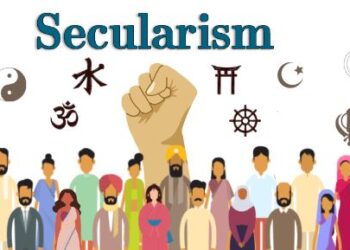All the religions are under the strong belief that humans are the creations of almighty god. So, all humans have to be treated as the children of god. Male and female are the integral parts of human race. Under such social necessity, how can the half of the humanity viz. womenfolk are discriminated in almost all religions but differ in the degree of discrimination? Such discriminations over a period of time became a social custom which started to keep the womenfolk under permanent subjugation. Whenever any social custom which discriminates women is opposed, it is dubbed as anti religious. Many social reformers were branded as anti religious activists. Many reformers of women liberation were branded that way which restricted their roles from activists to mere preachers.
Even within the same religion, the social practices differ from region to region; within the same region from one temple to the other. On this ground, the worshipping rights of women folk differ from one temple from the other, despite the deity of worship is one and the same.
In Sri Sabarimala temple, Kerala, women between the physiological phases of ‘menchre’ and ‘menapause’ are not allowed to worship the deity of Ayyappa. It is believed that women are in the phase of menstruation cycle between such age groups of 10 – 50 years. If women of such age groups are allowed , it is said , the sanctity of the temple would be lost due to pollution. The temple is under the control of the State Government; despite its progressiveness to lift the ban on women entry, the temple management is reluctant to women’s entry. The temple says the ban on women entry is a century old social custom. Whereas, women are freely allowed into other Ayyappa temples! Would not the sanctity of those temples be affected?
During the past, many a social customs have been changed which had witnessed stiff resistance at the beginning. Social customs cannot decide the dignity of women. The longer era of the practice of ‘sati’ as social custom was abolished in 1830s in the British India. If any social custom is injurious to human dignity, it has to be abolished irrespective of its religious nature and the longevity of the custom. In a civilized nation the State must be the supreme body of governance. Indian Constitution enables the State to reform the society as per the Article 25 (2) (a) “Nothing in this article shall affect the operation of any existing law or prevent the State from making any law regulating or restricting any economic, financial, political or other secular activity which may be associated with religious practice”.
Recently Muslim women were blocked from their access to the sanctum sanctorum of Haji Ali Durgah, Mumbai against which a Muslim Women organization fought in the court of law. At one stage the trustees of the durgah told the Court that equal rights to men and women would be extended. At present the women devotees are allowed entry into the durgah and they present flower tributes to the shrine.
All religions must come forward to give equal rights to both men and women in the practice of worship. After all, the worshipping right is more a human right than religious. If religions are reluctant to worshipping right to women in all the worshipping places, the State must interfere to uphold the dignity of women through the constitutional means which is the supreme text to govern the citizens.









